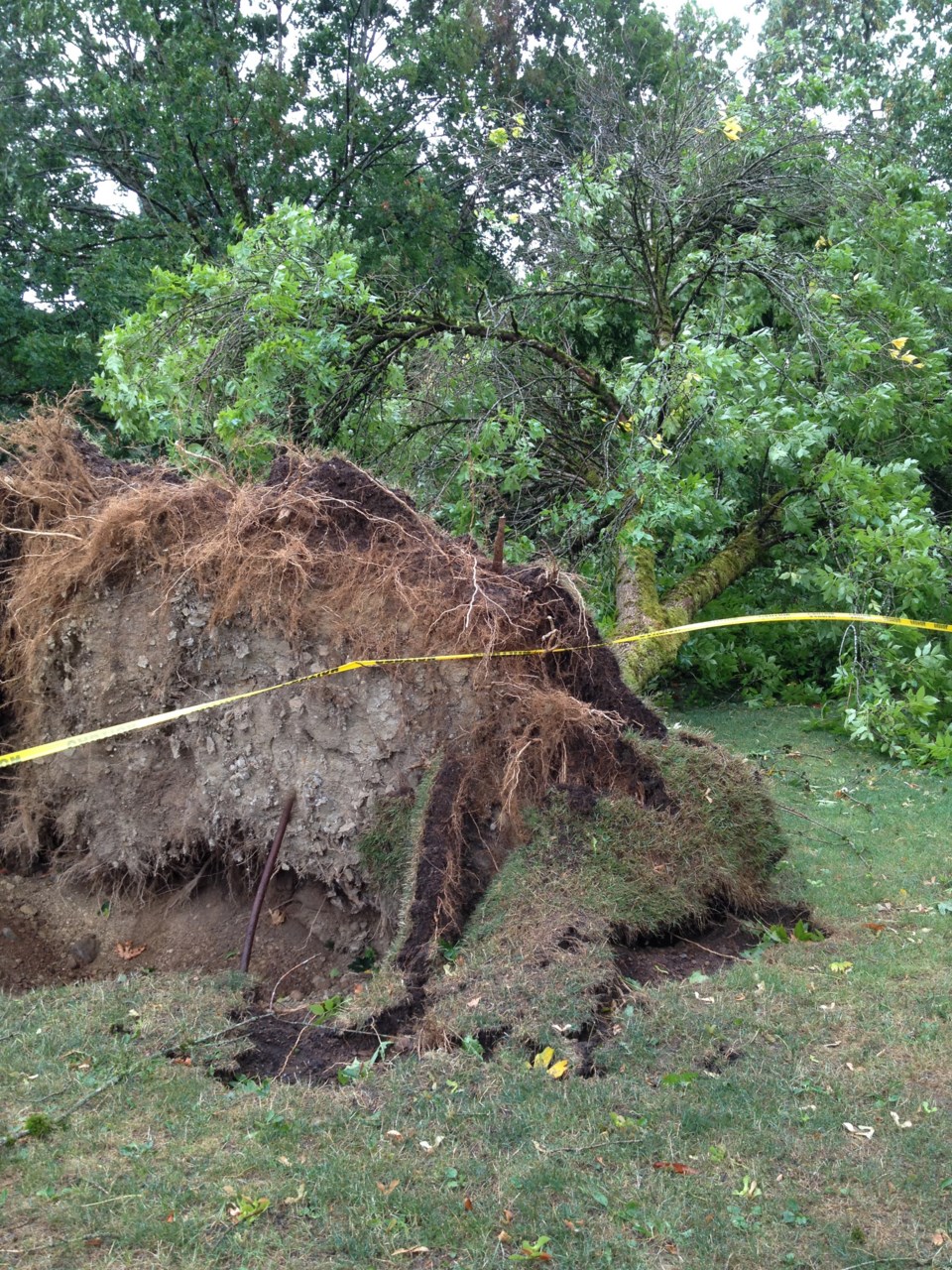Mother Nature huffed and puffed and blew debris all over the Royal City during Saturday’s wind storm – but it could have been much worse.
The city’s engineering operations and parks crews are busy dealing with debris across the city in the aftermath of Saturday’s storm. Heavy winds in Metro Vancouver left many streets littered with leaves, branches and fallen trees.
“We didn’t have any real big issues here – we had lots of trees down, lots of people out there working. I think we had to bring in two extra people to help out,” said Jon McDonald, the city’s manager of electrical operations. “Our Queensborough power didn’t go out, so we didn’t have any sewage pump station issues. That was a really good thing. The whole Queensborough area is dependent on sewer pump stations. If the power goes out, so do they.”
City crews spent the weekend clearing debris from roads and sidewalks, as well as making sure drains were clear of leaves.
“We were really fortunate it happened the way it did and we didn’t get the rain that they forecast. But now we have to clean up because they are still forecasting rain. We have make sure those drains are clear. It is a real issue for us,” McDonald said. “If people see the drains in front of their home are covered in leaves, scrape the leaves off them. That’s just generally the case. Don’t let yourself flood.”
During the storm, the city had to close a few roads because of fallen trees and debris.
“Our guys worked hard and they got things cleared up so at least the city was driveable,” McDonald said. “You don’t even hear about New Westminster on the news.”
City crews temporarily store debris collected around the city in the old tennis courts at Queen’s Park.
“It’s going to be probably a week of cleanup,” McDonald said. “There is debris all over. Especially in the Queen’s Park area, there is tree branches. It is just a mess.”
Dean Gibson, the city’s director of parks, culture and recreation, said parks staff are still assessing the damage from Saturday’s storm, as their initial focus was responding to issues in the city.
“My impressions are we had some areas of the city, particularly within our parks, that were hit fairly hard. Queen’s Park was probably the one that suffered the most damage, particularly in the area of the park near the main entrance,” he said about the spot where trees were lifted out of the ground and toppled. “That was probably the most dramatic thing that happened within our city park lands.”
Deciduous trees – those that lose their leaves in the fall – took the biggest hit in city parks, Gibson said.
“Those leaves just act like big old giant sails in the heavy wind,” he said. “Typically our heavy winds don’t happen at this time of year, they would happen in November or December when all the leaves are gone off of the trees. Now you’ve got the leaves on there, a lot of resistance to the wind itself, and these particular trees haven’t grown up needing to resist those sorts of winds, whereas evergreens do so they bend and flow and flex. That is what we are thinking is one of the contributing factors.”
Gibson said there’s been a lot of interesting speculation among arborists about the degree that drought conditions may have impacted the trees.

